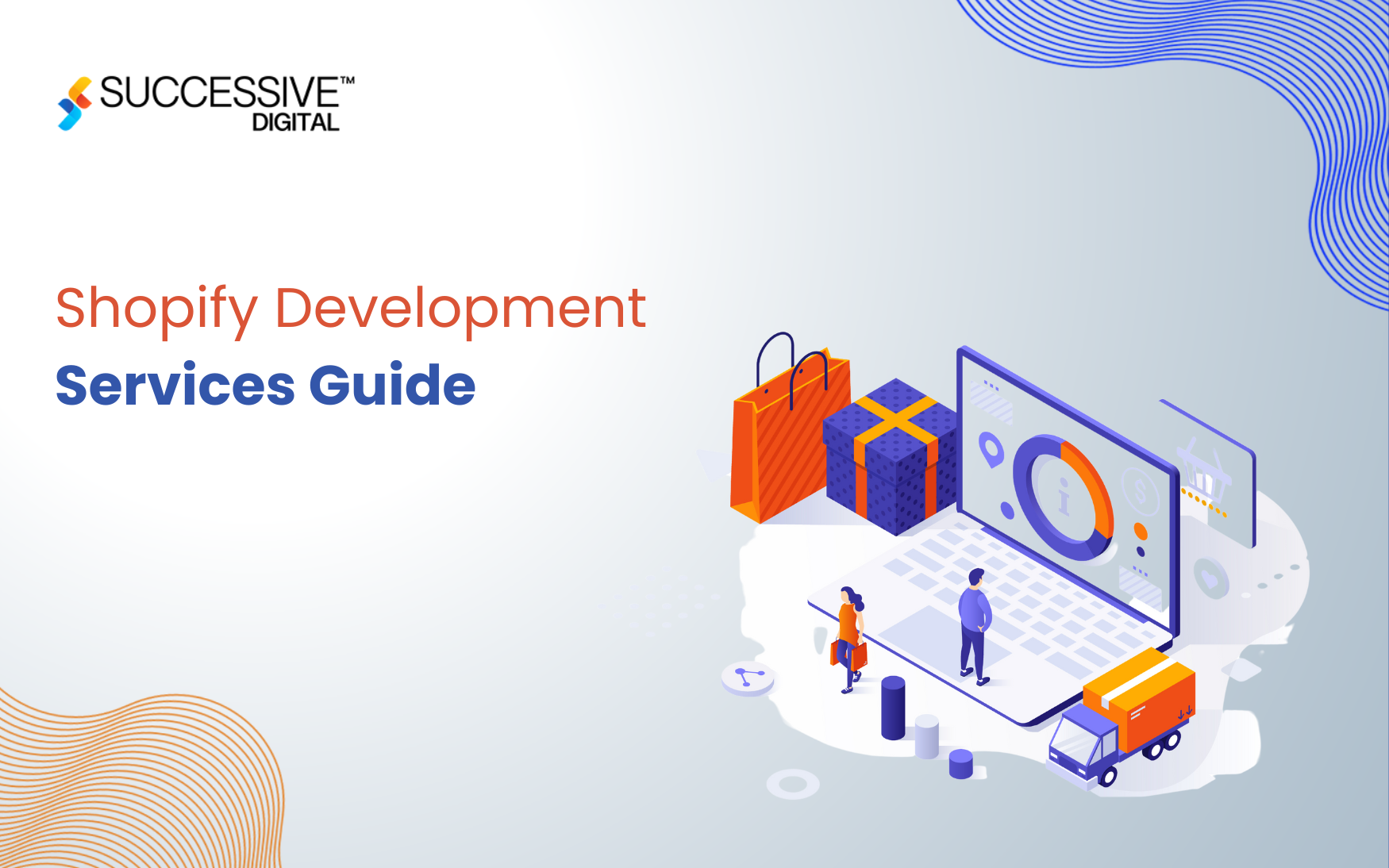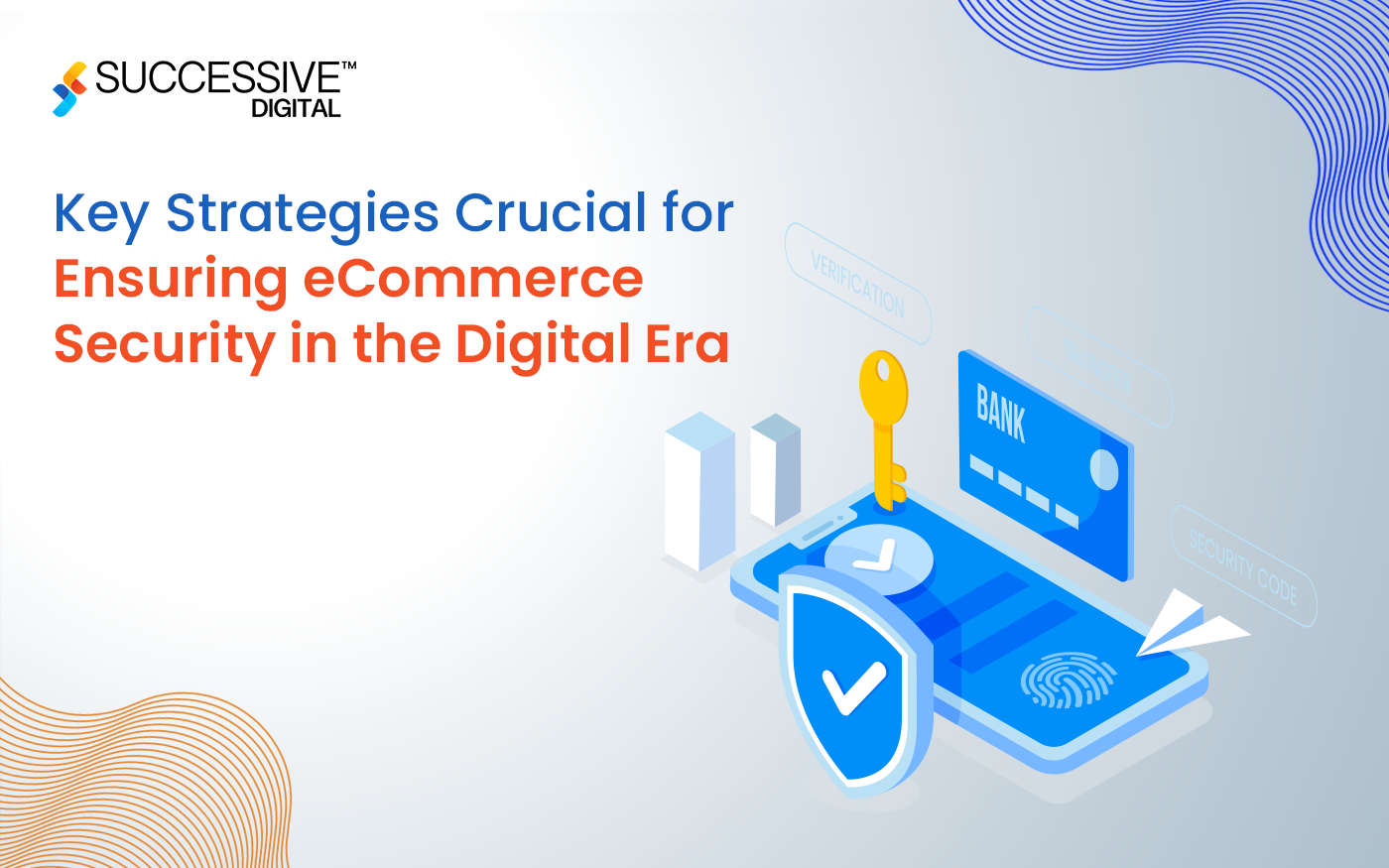In today’s ever-evolving retail landscape, ecommerce has emerged as a pivotal driver of global exchange trade, enabling how businesses interact with consumers fostering convenience and accessibility. This growth trajectory of ecommerce, fuelled by evolving user behaviors and technological advancements, allows companies to scale their digital infrastructure to meet the increasing demands of their customer base. It also accelerates the widespread adoption of ecommerce app scaling solutions among enterprises.
The surge in online shopping has thrust eCommerce apps at the forefront of retail operations, serving as an essential channel among businesses and their clientele. However, this upward push also introduces many challenging situations, spanning from managing surges in site visitors to delivering customized experiences tailored to individual choices. Addressing these complexities necessitates adopting transformative solutions that leverage cutting-edge technology to ensure constant overall performance, scalability, and dependability.
This blog explores the complexities of scaling ecommerce apps and discovers solutions that assist businesses in navigating the intricacies of digital expansion correctly. By analyzing real-world examples and leveraging modern-day technology, which includes cloud computing, microservices structure, content delivery networks, data management solutions, and AI, discover the techniques that drive sustainable growth and foster seamless purchaser experience.
The Challenge of Scaling Ecommerce Apps
-
Increased Traffic
With the proliferation of online purchasing, businesses witness a surge in website traffic during peak seasons, along with sales or promotional activities. This increased demand for e-commerce can pressure the infrastructure of e-commerce apps, leading to overall performance issues like slow loading times or even website crashes, disrupting user experience.
-
Diverse User Base
Ecommerce apps cater to various user bases with numerous alternatives, behaviors, and geographical locations. Addressing the needs of this various audience requires a nuanced approach, inclusive of multilingual support, localized content, and personalized recommendations tailor-made to individual choices and interactions, ensuring a continuing and inclusive customer experience.
-
Data Management
Efficient information management is essential for ecommerce apps, encompassing responsibilities such as managing product listings, consumer information, and transaction information. Robust database solutions, including distributed databases like MongoDB and robust statistics caching mechanisms, ensure scalability and reliability, allowing companies to address massive volumes of statistics while maintaining top-quality overall performance and information integrity.
-
Personalization
Personalization is key in ecommerce, as customers anticipate tailor-made experiences. Brands use AI algorithms to examine customer statistics to offer product suggestions, customized offers, and focused marketing campaigns. This enhances user engagement, increases conversion rates, and fosters long-term customer loyalty via delivering meaningful interactions based on individual options and behaviors.
Solutions for Scaling Ecommerce Apps
To address these challenges, ecommerce businesses employ a variety of solutions leveraging cutting-edge technologies:
Cloud Computing
Cloud computing is one of the key e-commerce app scaling solutions. It revolutionizes e-commerce infrastructure by offering scalability, flexibility, and cost-effectiveness. Leveraging cloud structures like Amazon Web Services (AWS), Microsoft Azure, or Google Cloud Platform (GCP), businesses dynamically adjust resources based on demand, ensuring top performance and international reach.
With pay-as-you-go models, brands reduce infrastructure expenses and dispose of the need for advanced investments in hardware. Additionally, cloud services offer robust security measures, information redundancy, and disaster restoration abilities, safeguarding against capacity disruptions. By embracing cloud computing, e-commerce businesses enhance agility, scale seamlessly to deal with sudden growth, and strategically align resources to innovate and improve the consumer experience.
Microservices Architecture
Microservices structure revolutionizes ecommerce app development by breaking down monolithic programs into more minor, impartial services. Each provider handles specific functions, promoting agility, scalability, and better maintenance. With microservices, businesses can scale individual components independently based on demand, ensuring the most outstanding overall performance and resource utilization.
This modular approach for growing business demands in ecommerce apps allows fast improvement and deployment of the latest features or updates, fostering innovation and flexibility. Additionally, microservices facilitate fault isolation, as failure in one service no longer disrupts the whole system. By using microservices architecture, ecommerce companies enhance scalability, agility, and resilience, empowering them to satisfy the evolving demands of the digital market.
Content Delivery Networks (CDNs)
Content Delivery Networks (CDNs) revolutionize ecommerce apps’ overall performance by distributing content throughout a network of servers strategically positioned globally. By caching static assets like pictures, CSS files, and JavaScript libraries on edge servers, CDNs lessen latency and accelerate content delivery to users, improving the internet site’s usual overall performance and customer experience.
With CDN offerings like Amazon CloudFront or Cloudflare, ecommerce businesses ensure rapid and reliable access to content, irrespective of customers’ geographic location. Additionally, CDNs offer robust safety features, including DDoS protection and SSL encryption, safeguarding against cyber threats and ensuring data integrity. By leveraging CDNs, ecommerce apps deliver a seamless experience to global audiences while optimizing overall performance and reliability.
Data Management Solutions
Effective data management is among the key ecommerce app scaling solutions essential for ecommerce apps to handle significant volumes of data correctly. Distributed databases like MongoDB or Apache Cassandra enable horizontal scalability, accommodating growth while retaining performance. Data caching mechanisms optimize database queries, improving responsiveness. Additionally, solid backup and recovery systems ensure the integrity and availability of specific statistics.
Implementing data encryption and access control safeguards sensitive data, ensuring compliance with data protection rules. Advanced analytics tools extract insights from data, suggest businesses for better decisions, and enhance user satisfaction. By leveraging comprehensive data management solutions, e-commerce organizations can streamline operations, mitigate dangers, and enjoy the full potential of data.
Conclusion
To meet growing enterprise needs requires a strategic combination of modern technology, adaptive techniques, and strategies for scaling ecommerce applications. By adopting cloud computing, microservices architecture, content delivery networks, data management, and AI technologies, businesses can navigate the complexities of digital expansion efficiently. As technology continues to innovate, the proactive adoption of modern solutions will be paramount for ecommerce businesses to sustain aggressively, foster growth, and deliver better customer experience in the dynamic online retail ecosystem.












